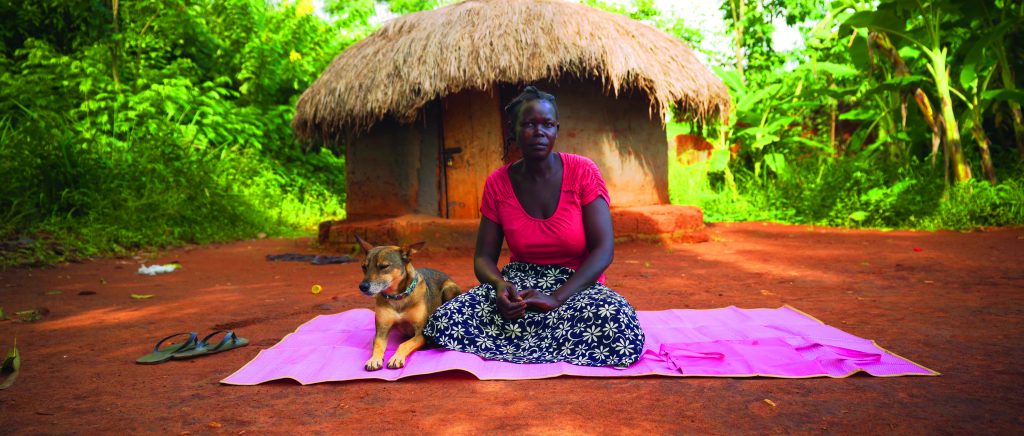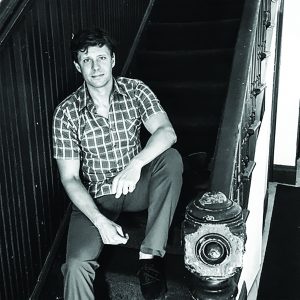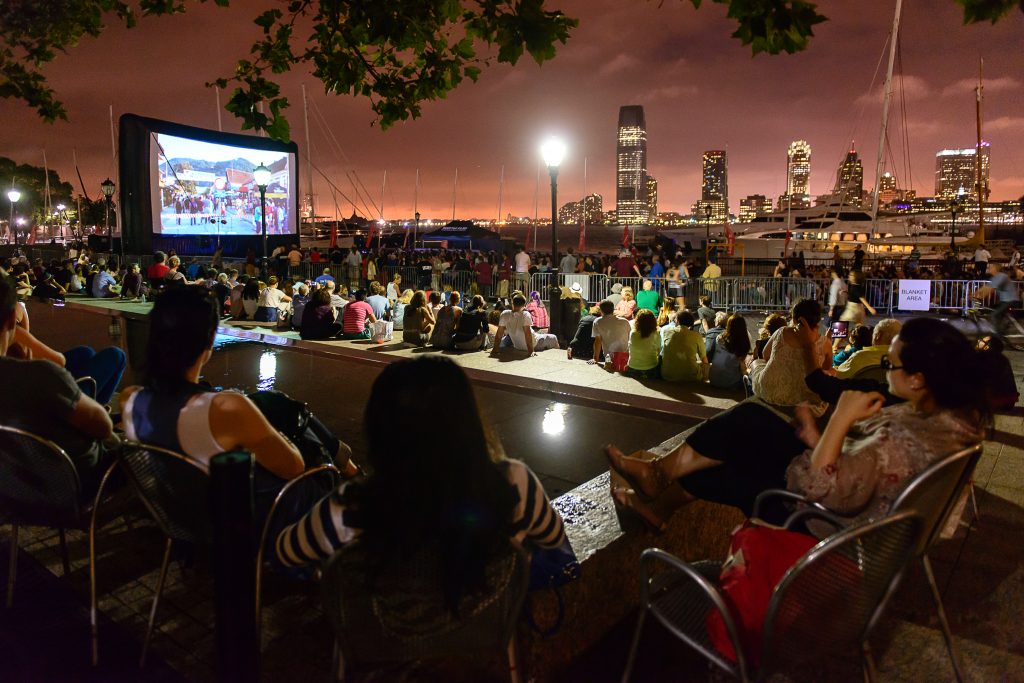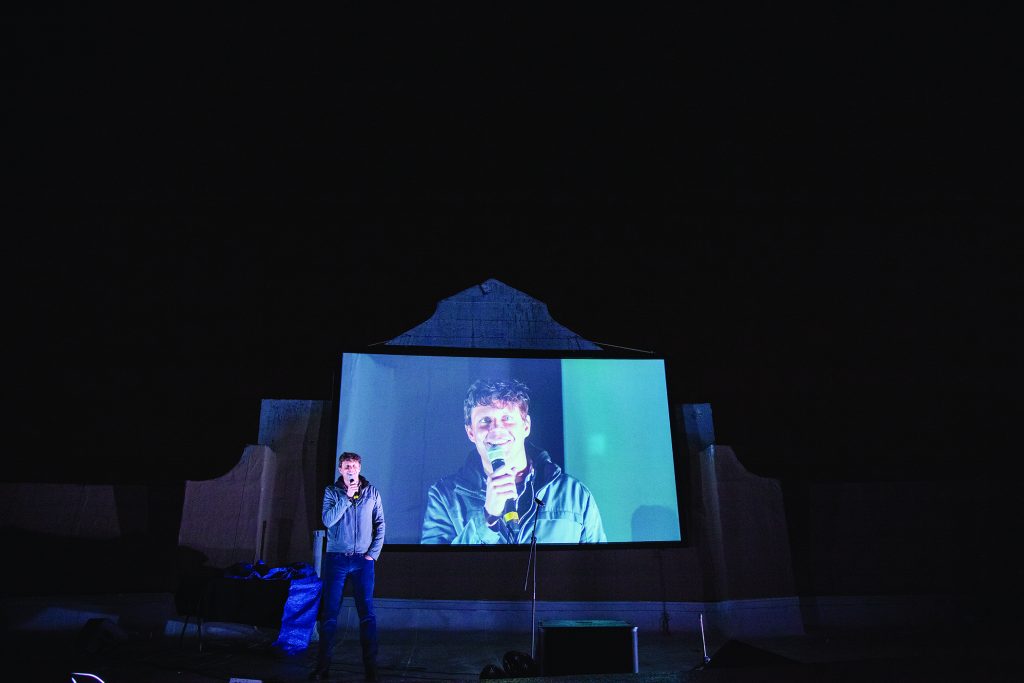
What connects us? What makes us different? What’s it like being a shepherd in the isolated mountains of Romania? Or an evening with a dog walker under the streetlights of Istanbul? And how does listening to these stories help us grow together?
From Park Slope filmmakers Matthew Salleh and Rose Tucker the new documentary We Don’t Deserve Dogs travels around the world beautifully capturing the lives of everyday individuals and their dogs. While we may never truly know what we did to deserve the unconditional love of our four-legged friends, there are sure to be life lessons in this special relationship.
The filmmaking duo of Urtext Films began their career in their home city of Adalene, Australia; and soon began developing and perfecting their own DIY hands-on way of documentary filmmaking. “When we started doing the documentary work we realized how much we could achieve just the two of us,” reflects Producer Rose Tucker. During production, Rose also manages Sound Recordist, while Matt takes the role of Director and Cinematographer. Together they’ve traveled the world intimately capturing the daily lives of individuals you may not normally see on screen. With just the two of them and sometimes a local translator as the crew, Matt and Rose are able to create a non-disruptive and personal filming experience, which reflects greatly in their work. The small, quiet details as incense smoke fill a prayer space. The rhythmic jingles of a dog’s collar tag. The friendly looks between patrons at a local pub. These natural moments make Matt and Rose’s first-person filmmaking style that much more mesmerizing, unique, and maybe a bit familiar.
Familiarity is always a starting point for Matt and Rose. Subjects that people are passionate about, things that get people talking. Their previous award-winning feature film, Barbecue (2017) covered BBQ culture across the planet. By capturing how everyday things manifest they can explore contrasts in cultures, while simultaneously connecting the things humans have in common. “It’s important to me because I come from a mixed-race background, so I’m always questioning what comes from each side,” says Director Matt Salleh. “We live in a seemingly very fractured world, and post-pandemic even more fractured. We can give insight and show commonalities in people’s lives while celebrating our unique differences.”
Of course, Park Slope is no stranger to the connective joy between fellow dog lovers. “One of the inspirations for this film is just looking out our window in Park Slope,” Rose remembers. “There are always people walking their dogs. People having relationships with each other based on their pets, visiting each other, and going to Prospect Park together.”
Filming for We Don’t Deserve Dogs took our fellow Park Slopers around the world. Traveling to 11 different countries in 9 months finding remarkable stories that would normally go untold. From Italy, Turkey, Uganda, Pakistan, Chile, Finland, Romania, Peru, Vietnam, Nepal, and Scotland; featuring 10 different languages, including some rarely seen on screen like the Acholi/
Lou language of Northern Uganda. “I think traveling when making a film is so different than traveling for tourism because you get that insight into what real life is like for people. You travel to neighborhoods you wouldn’t normally go to,” says Rose, who coordinated their travels and connections in each country.
By working with locals as tour guides, translators, and researchers they successfully sought out interview subjects and narratives. These tour guides, dubbed ‘fixers’ came from all walks of life. Some journalists, photographers, or students, all people who were embedded in the local community in some way and offered a bridge into that specific culture. For example, Matt tells about working with a female street performer in Santiago, Chile. “She created these street tours that took us to hidden parts of the city. She knew the lesser popularised history, like LGBTQ history, which meant she had to talk to people, understand the culture and people’s stories.”
Spending about 2 weeks in every country, the duo worked tirelessly, on foot, by car, and even on motorbike to capture the immersive terrains, complex soundscapes, and individual narratives. They didn’t seek to create the cliché cutesy dog film, nor interview celebrities or the boldest of personalities, but rather everyday individuals and their canine companions. Whether energetic or melancholy, spiritual or quirky, We Don’t Deserve Dogs shifts with each location’s distinct rhythms and pace of life. In Miraflores, Peru, you’ll meet young women throwing birthday parties for their adopted dogs. In Turku, Finland, support dogs for the elderly and disabled bring needed joy and cheer. In Gulu, Uganda, former child soldiers help rehabilitate street dogs as a form of trauma therapy. While directing Matt trusted subjects to share their experiences in their own voice and view. “We are not a voice-over saying what people should think about other people’s lives, we just want to show people’s lives as they are.”
While Matt and Rose feel privileged and bless to have their nomadic filmmaking lives, they have continued to find comfort in returning to Park Slope. A place that again brings together community and familiarity within the much larger New York City setting. Having immigrated to the United States four years ago, Rose expresses her appreciation, “We are lucky to have landed in Park Slope. We joke that we are more connected with our neighbors here than we were in a smaller city back in Australia. It’s a different kind of community living. In Australia everyone is in their house or in a car, here everyone is walking, sitting outside, everyone knows their neighbors and knows who works at the shops.” This aspect has also influenced the couple creatively. Not only reflecting on the immigrant experience, but the ability to find affinity, support, and friendship through genuine connection with those around us.
So here in their one-bedroom apartment, the editing process commenced for 3 months; reviewing hundred of translated transcripts, determining detailed story structure, meticulous color grading, and adding the beautiful score by composer Blake Ewing. Matt and Rose emerged from the editing cave in February 2020 (unfortunately only to return a month later for quarantine), and We Don’t Deserve Dogs made its virtual world premiere at South by Southwest 2020 Film Festival. The film is now digitally available for everyone to enjoy.

And it’s the perfect film for Park Slopers. Yes, of course, because of the dogs; but equally the showcasing of different cultures, religions, genders, and generations. “I think people in Brooklyn have a strong interest and deep respect for other cultures and want to know what’s happening around the world,” says Rose. “We made a very intentional decision to not film stories in Western countries like the U.S. or Australia. All of the stories are coming from lesser-known places. And I think people in Park Slope would be very interested in seeing for example what the relationship between a Muslim woman and her dog in Karachi [Pakistan] is like, and how that can relate to their own experience back here.”
There are no doubt commonalities seen right here in the melting pot that is Brooklyn. Every corner has a little – or more likely a lot – of history, culture, and influence from around the world. Matt expressed, “I don’t think Brooklyn would function in the way it does without all these different cultures coming together.” Matt and Rose even express how that if they find a food dish they love while traveling they have good faith in Brooklyn’s diversity they’ll be able to get it when they return home. “In filmmaking, we have this love and opportunity to travel and meet people from dozens of cultures, and they are all also right here in Brooklyn.”
If there is something special to be said about our ability to come together and blend cultures in our neighborhood, there is equally something to be said about how we can distinctly set each other apart. “We always start our films off with this positive hypothesis that there’s more good in the world than bad. Over and over again we meet people who prove that and amaze us with their stories. Their courage, their bravery, their insight into the world, how they preserve their history, how they celebrate their cultures,” Matt says when reflecting on what he hopes people will get out of the film. “So the fact our film is just listening to people talk about their lives, where they come from, and what is important in their culture, I think it’s a good first step to greater cultural understanding.”
In documenting these genuine stories, valuable kinships, and heartfelt moments from around the world, Matt and Rose’s film We Don’t Deserve Dogs follows the thread that connects us to the humanity, companionship, and unconditional love we may have with dogs and with each other.
Visit wedontdeservedogs.com to watch
Follow @urtext



